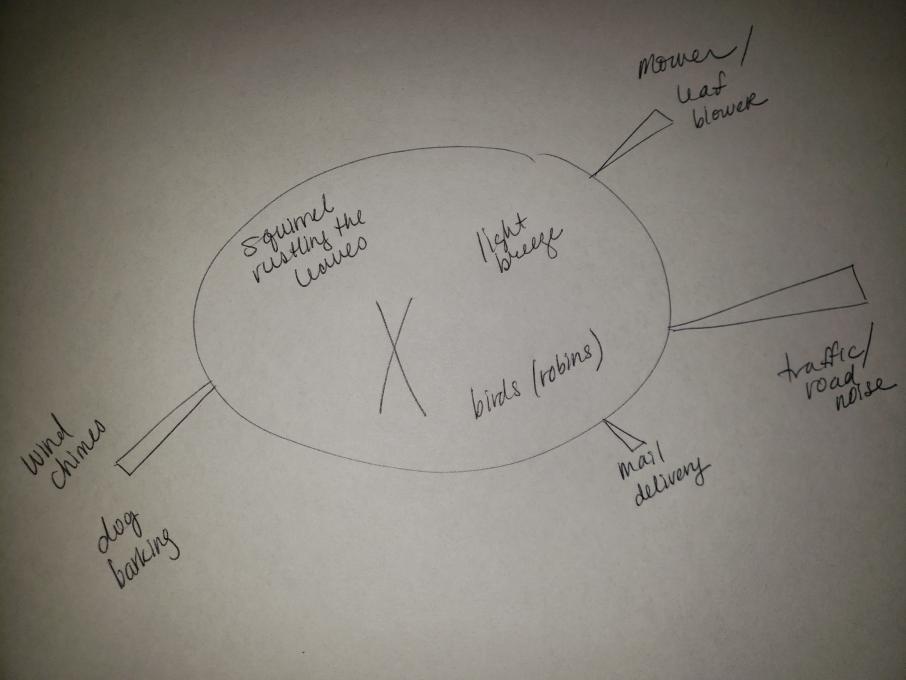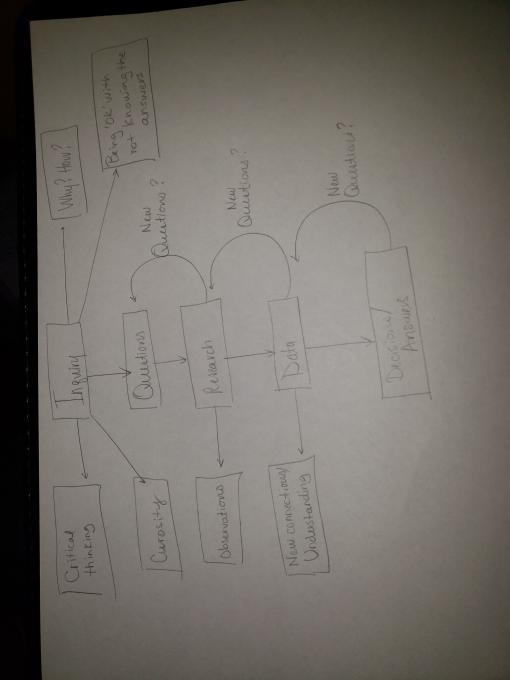Liz
Forum Replies Created
Viewing 15 posts - 1 through 15 (of 15 total)
-
LizParticipantI like to make learning relevant. And in doing so, I like to make the assessment relevant as well. Assessment should be less focused on grades or scores but what did the learner actually learn by doing the project? Criteria for assessment should look at elements such as creativity, data analysis, implementation, interpretation, and at the depth of knowledge level 3 or 4. In traditional grading systems there is a lot of emphasis on grades/scores and less on the actually learning take place. I understand why but I like to focus on authentic learning and what a student can actually tell me they have learned from doing something.in reply to: Sharing Student Projects #678870
-
LizParticipantHolly, You bring up a good point about struggling students and how to keep them engaged. What I've found to be helpful is that students each have a speciality and are really good at. That becomes their focus and you help them to discover it. Ultimately with PBL and citizen science projects, it allows student voice and choice which is a powerful mechanism for instilling student engagement and success.in reply to: Assessing Investigations – Classroom Case Study #674685
-
LizParticipantIn the fall semester, I started a new Earth & Space Science course that focused on project-based learning (PBL). In my mind, PBL is very much inquiry based. What I've learned is similar to what Mr. Kahler experienced in his citizen-science project. One of the biggest challenges, after defining the phenomena and driving question, is working with students to develop their own research questions. I had to spend 2 entire class periods and then continue to touch on it throughout the project about how to ask good questions that focus on the What? How? and the Why?. After that, I had a media specialist come in the class and talk about how to conduct research, avoid plagiarism, and cite sources. Again, these were topics that continuously needed to be re-visited throughout the project. You can't talk about these once and then assume that students understand their importance and know how to handle them appropriately.in reply to: Assessing Investigations – Classroom Case Study #674684
-
LizParticipantI chose the Lost Ladybug Project. The goal of this project is to figure out the species distribution across the world for ladybugs so other insect populations can be kept in check. I tried to do a data export of the LLP data but it didn't appear to work. However, summaries were available by species and country and you could also graph data using a pie chart. For lower level grade, this data would be ideal. There were also maps of the United States that showed drop points for 4 different species. Students could use this data to try to figure out habitat requirements of different species, they could make a pie charts, and they could also conduct bar graphs showing the summary of different species as well as a summary of country presence.in reply to: Data Literacy Through Citizen Science #673821
-
LizParticipant1. I did the Project FeederWatch. 2. Bird ID...wow, I thought I need my birds fairly well but I had to look a couple of them. I think it was because they were females and did have very obvious markings. I saw doves, robins, house wrens (I think), red-winged blackbirds, and cardinals. 3. I think this would be an easy project to participate in. I didn't formally login and record my data, but I could have my students easily sign up and do this while school is closed. I like the annual sign up too so it gives students a reason to keep doing it and possibly encourage them to keep doing it.in reply to: Symbiosis in the Soil – Classroom Case Study #671743
-
LizParticipantI think the primary way to support youth curiosity and questioning is helping them see themselves as scientists to begin with. Many students have this idea in their minds about what a scientist is or what a scientist usually does. Unfortunately, that mental image is usually not of themselves although it certainly can be since we are all scientists in some regard with our innate ability to inquire and better understand the world around us. Students are always looking for the "right answer" so I always encourage them by saying there is always an answer, maybe you just haven't asked the right question(s)! They drives them crazy but they know that I am not going to give them the answer(s). It puts them in a position to brainstorm, think, collaborate, and communicate with their peers to dig deeper and keep exploring. And in some instances, students need to be comfortable with not knowing the answer or having an answer based on the best available data. That usually leads to a discussion about laws vs. theories vs. hypotheses, etc.in reply to: Launching Investigations #671318
-
LizParticipantIn my classroom, I always model the behaviors I would like for my students to do. This is as simple as pushing in my chair when I get up to asking good questions (the What? the Why? the How?) on a daily basis. Students need structure and routine so by modeling behaviors that scientists engage in on a daily basis, students can begin to see these behaviors in action and hopefully begin to do them themselves. I also think that we can give students activities that are more guided and open inquiry. Designing activities in this manner will help students to build up their confidence in making observations and coming up with questions for an "I wonder" board. One final thought here, I see the value in open inquiry activities but you must build students up to be able to perform open inquiry investigations so they don't get frustrated and give up.in reply to: Supporting Open-ended Questions #671298
-
LizParticipantThe most impactful thing about my sound map was how much I actually tune out on a daily basis when I go outside! I've done an activity similar to this but left out the taste sense because I didn't want students eating dirt. When doing the activity however, I found that is was important to really spread out, and close your eyes when doing the listening part. After 10 minutes of listening, I then let students open their eyes so they could touch, feel, and smell certain things. Just going outside away from "screen time" is important to having students realize that they are part of the world in which they live.
 in reply to: Encouraging Observations #671117
in reply to: Encouraging Observations #671117 -
LizParticipant1. "Youth as people who do science." I thought it was important in how you frame this to students when beginning a citizen science (CS) project. The example used was a question that you could ask students: Could a scientist use this information? By the way this question is asked, gives students a sense of responsibility in the quality of the data they collect if they know someone else is going to use it. 2. "Frame the work globally and locally." Connecting science to a students sense of place is so important here. Depending on the socioeconomic status of students you serve, might mean that some students have not had experiences beyond a local geographic area. Therefore, it's critical to focus locally to help motivate students and give them a sense of ownership. For me personally, I do not reside in the area in which I grew up but compared to my students who are from here, I've been astonished about what they don't know of their "home." I'm constantly trying to bridge that gap and I think CS projects will help. 3. "Attend to the unexpected." This can be such a powerful teaching moment especially when doing CS in the natural environment when anything goes. It appears that many CS projects are conducted outdoors anyways, but if not, an outdoor learning environment would be critical for this to be able to happen.in reply to: Citizen Science in Your Classroom #671109
-
LizParticipantI too like the larvae monitoring project. I think if you can get a stand of milkweed growing this would be an excellent backyard habitat project to do on school grounds.in reply to: Intro to Citizen Science #670889
-
LizParticipantI have not yet done a citizen science project hence my desire to take this course and learn more! I think a citizen science project would work great as an after-school program or with boy and girl scouts or other youth organizations. I've never done a citizen science project in my classroom mainly due to time constraints. However, after looking through the citizen science projects above, the time commitments seem reasonable so I'm going to do one! I especially like the Monarch larva and BudBurst projects!in reply to: Intro to Citizen Science #670888
-
LizParticipantWhat an excellent outdoor activity! For the last part, I think it would be fun for students to also be able to do water quality testing. Maybe that is already part of the open inquiry but parameters of a water quality testing could be used to help answer the question of "what is a healthy pond / creek?"in reply to: Inquiry in Your Classroom #670886
-
LizParticipant1. Chemical reactions lab using four types of chemical reactions and it would be a structured inquiry lab. 2. The science practices that students engage in during this lesson would be asking questions, carrying out an investigation (they wouldn't necessarily have designed/planned it though), analyzing and interpreting data, using mathematics, constructing explanations, and communicating their information via a lab report format. 3. To make it more inquiry-based I would provide students with a list of chemicals and equipment and let them combine reactants after they've researched the chemicals. Instead of telling them the reactants, I would let them pick based on properties we would have already discussed. By doing this, it would give students the opportunity to actually plan their investigations and argue from evidence about why certain chemicals were chosen as reactants over others available.in reply to: Inquiry in Your Classroom #670884
-
LizParticipantI like that your concept map is circular because I feel with inquiry we might be going in "circles" or at least coming back to our initial thoughts and questions to revise them based on new data.in reply to: Intro to Inquiry #670877
-
LizParticipantThe way I perceive inquiry is that it is innate to humans. It isn't something that is taught but something that we already know to do. Seeking, discovering, exploring, questioning the world around us are inquiries into our own worlds. Inquiry also embodies the "never stop learning" philosophy because to me, just because we figure something out given the best available and current data, have we really figured it out? Do we stop asking questions? No, we do not. Unfortunately inquiry is often suppressed in traditional classrooms across a variety of disciplines so then it becomes this "new" form of pedagogy and "all the rage" which it really is not.
 in reply to: Intro to Inquiry #670876
in reply to: Intro to Inquiry #670876
Viewing 15 posts - 1 through 15 (of 15 total)

